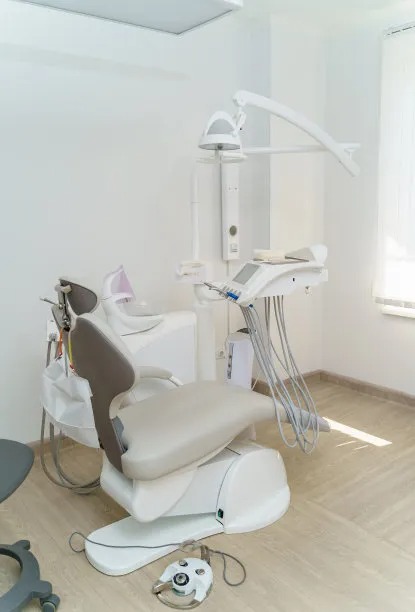Summary: Root canal treatment is essential for preserving teeth and relieving pain, but ensuring its safety and effectiveness requires careful precautions. This article outlines four critical aspects: thorough pre-operative evaluation, maintaining sterile conditions, employing advanced technologies, and providing comprehensive post-operative care. Each of these areas plays a significant role in maximizing patient comfort and promoting successful recovery. By adhering to these essential precautions, dental practitioners can enhance their practice while delivering optimal care to their patients. This knowledge will empower both patients and practitioners in navigating the complexities of root canal treatments.
1. Thorough Pre-operative Evaluation

A thorough pre-operative evaluation is fundamental to the success of root canal treatment. Before any procedure, dentists must conduct a comprehensive assessment of the patient’s dental and medical history. This includes identifying any allergies, medications taken, and the overall health status of the patient. Such evaluations help in determining the right approach to treatment, thus minimizing risks.
Additionally, clinicians should perform a clinical examination of the tooth in question. Diagnostic imaging, such as X-rays, is critical for visualizing the root morphology and identifying any potential complications, such as abscesses or fractures. This information is vital for informing the treatment plan.
Finally, informing the patient about the procedure helps to alleviate anxiety. By discussing what to expect, potential risks, and the importance of following post-operative instructions, patients are more likely to be cooperative and relaxed during the procedure, contributing to a smoother experience.
2. Maintaining Sterile Conditions
Maintaining a sterile environment is essential for infection control during root canal procedures. Dentists must follow rigorous sterilization protocols for all instruments used in the procedure. Each item, including files, broaches, and endodontic handpieces, should be properly sterilized before use, ensuring that pathogens are eliminated.
The use of personal protective equipment (PPE) is another crucial aspect of maintaining sanitation. Dentists and their assistants must wear gloves, masks, and eyewear to prevent contamination of both the patient and themselves. This not only protects everyone involved but also helps build trust between the patient and the dental team.
Furthermore, the treatment area itself must be meticulously disinfected. Surfaces should be wiped down with appropriate disinfectants, and any materials that come into contact with the patient must be either disposable or sterilized. Rigorous attention to these details significantly reduces the risk of post-operative infections and complications.
3. Employing Advanced Technologies
The integration of advanced technologies in root canal therapy enhances treatment effectiveness and patient safety. One such advancement is the use of digital radiography, which provides high-quality images with less radiation exposure for the patient. This technology allows for improved assessment of root canal anatomy and the precise location of potential issues.
Additionally, endodontic microscopes have revolutionized the way root canals are treated. These tools provide magnification of the treatment area, allowing dentists to visualize minute details that may be missed without such optics. Enhanced visibility enables better cleaning and shaping of the canals, which translates to higher success rates.
Finally, the use of cone beam computed tomography (CBCT) for 3D imaging gives practitioners a complete view of the root canal system. With this comprehensive understanding, dentists can tailor their approach to each case, significantly enhancing the outcomes of root canal treatments while ensuring patient comfort throughout the process.
4. Providing Comprehensive Post-operative Care
Post-operative care is crucial to ensuring optimal recovery following a root canal procedure. After the treatment, patients should receive clear and detailed instructions on how to care for the affected area, including pain management recommendations and appropriate dietary choices. This information is vital for minimizing discomfort and facilitating healing.
Continuous follow-up appointments are also essential. These visits allow dentists to monitor the patients healing progress and address any concerns or complications that may arise. It provides an opportunity for patients to voice their experiences and allows the practitioner to reinforce proper care practices.
Finally, educating patients about the early signs of potential complications such as increased swelling or persistent pain is paramount. Encouraging patients to promptly report any unusual symptoms can lead to timely interventions and optimal recovery outcomes.
Summary:
In summary, taking essential precautions throughout the root canal treatment process is paramount for achieving safe and effective results. Thorough pre-operative evaluations, stringent sterile practices, the utilization of advanced technologies, and providing comprehensive post-operative care collectively contribute to optimal patient care and recovery.
This article is compiled by Vickong Dental and the content is for reference only.
Vickong Dental
Vickong Dental is a large medical group established in Hong Kong in 2008 by professors from well-known medical universities in Guangdong and Hong Kong, as well as medical doctors from key national '985' universities (including Master's supervisors and senior professors). The chain of branches brings together expert dentists with PhDs and Master's degrees from Hong Kong and Mainland China, committed to providing high-quality dental treatment.
"Vickong Dental Practices the University Motto of 'Healing and Serving Society,' with a Stable Operation for Sixteen Years. It Has Been honored with Hong Kong Enterprise Leaders's Choice,' and is a Global Trusted Implant Center for the Nobel Implant System. Recommended by Hong Kong Metro Broadcast and Guangdong Television, it Serves Customers from Over Thirty Countries and Regions, Gaining the Trust and Favor of Citizens from the Guangdong-Hong Kong-Macau Greater Bay Area and Surrounding Cities.

Thousands of customers' unanimous praise
The most recognized and highly recommended dental service by customers in the Guangdong-Hong Kong-Macau Greater Bay Area
We Ensure You Receive Detailed Care and Attention Here
Hong Kong standards, Shenzhen prices, Your Trusted English-speaking dentists

Vickong Dental Medical-Grade Instrument Disinfection Process
Vickong Dental Medical-Grade Instrument Disinfection Process

Vickong Dental Chain: A Warm and Comfortable Environment for Treatment






Appointment Hours

Q&A
Why choose Vickong Dental?
Vickong Dental practices the university motto 「Medicine to Benefit Society」, with each branch bringing together highly qualified dentists with doctoral and master’s degrees from Hong Kong and the Mainland, and has maintained seventeen years of steady operation。Recipient of 「2024 Hong Kong Enterprise Leaders Brand」, 「2025 Hong Kong Enterprise Leaders Brand」, a Nobel Biocare Global Trusted Implant Center, and a brand recommended by Metro Radio Hong Kong and Guangdong TV。
To date, we have served customers from more than thirty countries and regions,earning exceptionally high word-of-mouth recognition and trusted recommendations from residents across the Guangdong-Hong Kong-Macao Greater Bay Area and surrounding cities
We have eight major branches in Zhuhai、Shenzhen,and a consultation and service assurance center in Hong Kong,so you can book a free consultation at any time for any questions,which is very reassuring.
If I do not accept the quotation after the CT scan, will I be charged??
No! As long as the actual treatment has not started, you will not be charged any fees.
Will there be any additional charges during the treatment process?
No, there won’t be any additional charges. Before treatment begins, we will clearly explain the treatment plan and its corresponding fees. Only after the patient agrees and signs the consent form will we proceed with the dental service.
Can I pay in Hong Kong dollars?
Yes. Vickong Dental accepts payment in Hong Kong dollars. The amount will be converted based on the exchange rate of the day, and the applicable rate will be clearly communicated to you in advance.
Can I reschedule my appointment at any time?
Yes. Please contact us via **WeChat** or **WhatsApp** as early as possible, providing your original appointment time and details, along with your preferred new date and time slot for rescheduling.













